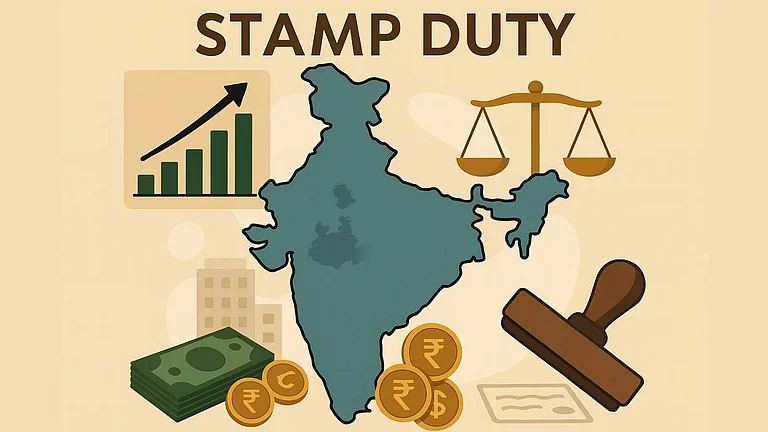After a 63-year-old prolonged battle, the landlord’s son got relief from the Supreme Court of India. The bench comprising Justice MM Sundaresh and Justice KV Viswanathan ordered the tenant to vacate the property by December 31, 2025, and pay the arrears to the legal heirs of the landlord. Property cases in courts are known for long battles, which sometimes extend across generations. While hearing the case, the court put emphasis on the bona fide need of the appellant/landlord. A bona fide need of a landlord means a genuine need of the landowner, not just a desire to occupy the rented premises.
The court noted, “We have weighed the evidence on record and found that taking the case of the respondents at its highest, and even if we believe each averment of the respondents at best, the parties in financial terms could be said to be equally poised. The respondents who own several businesses have managed to cling on to the premises for the last 63 years, after the expiry of the 10-year lease.”
It observed, “In this case, nothing is on record to show that the tenant who has been in the premises for a total of 73 years with 63 years of them after the expiry of the lease, has made any attempt to seek any alternative accommodation and nothing is brought on record to show that he was unable to get one.”
Brief Of The Case
In this case, a tenant took the property on October 13, 1952, on a 10-year lease from a landlord who sold the property to another person on March 26, 1962, before the completion of the lease period. When the new landlord asked the tenant to vacate the property, conflict started.
The new landlord filed a case in 1965 and got an eviction order from the Additional District Magistrate (ADM). The Additional Commissioner also confirmed this order.
The tenant, however, sought relief from the State government, which set aside the ADM order. In the line of events, at last, the petitioner lost the case after reaching the Supreme Court in 1974.
On October 09, 1975, the landlord filed a case again in the district court and then in the High Court in 1999. While the legal battle continued, he died. Then his children got involved in the matter and finally received a favourable order from the Supreme Court in April 2025.
Arguments
The appellant side argued that it is the landlord’s bona fide need to have the said property as there is no other sufficient and regular source of income. It also referred to the order of the prescriber authority, who found it to be a bona fide requirement of the landlord.
The respondent (tenant) side argued that it is not bona fide, and the landlord is part of the business and has another source of income. Thus, the appeal is not maintainable. The counsel further argued that the legal heir cannot continue the litigation on behalf of their father and should file a fresh application based on their own requirement for the release of the said property. The counsel argued that legal heirs are well-settled and do not need the property.
The Court’s Observation And Judgement
The court referred to the Section 21(1)(a) of the Uttar Pradesh Urban Buildings (Regulation of Letting, Rent and Eviction) Act, 1972, which deals with the Proceedings for release of building under occupation of tenant and Rule 16(2) of The Uttar Pradesh Urban Buildings (Regulation of Letting, Rent and Eviction) Rules, 1972, which deals with the application for release on the ground of personal requirement.
Finally, it held the court held that the bona fide needs of the landlord are established.
It observed, “It is well settled that the bona fide requirement for the occupation of the landlord has to be liberally construed and, as such, even the requirement of the family members would be covered.”
It allowed the eviction plea of the appellant, who was found to have a bona fide need for the property for his disabled son, who does not have any other property, and his income is not enough to support his family.
It said, “We finally bring the “curtains down” on this long, drawn-out litigation concerning the cinema hall (the property in question).”
It ordered the tenant to vacate the premises by the end of year 2025 deliver possession of the property and clear all the arrears, rent, or charges within four weeks from the date of order.
Lessons For Landlords
Earning a passive income is good but not at the cost of losing your asset.
This was one of the cases which prolonged more than half the century. However, to avoid the scope of such a tussle with tenants, landlords must be careful and know their legal rights while renting out their house or other property.
Key Points To Keep In Mind While Renting Out
Ruchita Datta, Partner, D&T JURIS, says, “The most important safeguard for landlords in today’s scenario is to ensure that they enter into a lease agreement with an arbitration clause.”
An arbitration clause allows landlords to seek interim relief such as rental arrears, due charges for utilities, and continued payments for all these dues during the arbitration case of eviction. The clause can negatively impact unruly tenants who otherwise have the resources to delay the court proceedings and the eviction.
Usually, senior citizens rely on rental income for their old age, for them she suggests, “The senior citizens must get a proper scrutiny done (viz, enquiring from the previous landlord, online checks of tenant’s credentials) of the tenants they wish to induct. A thorough background check of the tenant by the local police is a must before inducting them.”
It's advisable to have a legal professional draft the rent agreement, ensuring that it includes clauses to protect against such situations. Moreover, it is important to not only have the rent agreement notarized but also to get it registered.
Other tips include making regular visits to check whether the tenant is properly maintaining the property and taking timely action if necessary.




















